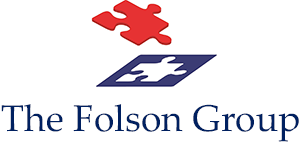NYC Real Estate Taxes
Photocredit: Deutsch Photography
By the Numbers
Did you know that...
New York City's real estate tax is the single largest expense for every Tax Class 2 apartment building in NYC?
Tax Class 2 buildings are residential buildings with 4 or more units and includes cooperatives, condominiums, cond-ops, and rental buildings.
Real Estate taxes account for approximately 50% of coops’ total expenses.
For condos, the taxes are charged directly to the owners and not included in buildings’ expenses.
As NYC is on a June fiscal year, the RE tax rate is adjusted every year on July 1st.
The city’s finance department just released this fiscal year’s real estate tax rates, which are effective from July 1. This year, Class 2 buildings had a slight decrease in the real estate tax rate.
The larger component of what determines the real estate tax burden in NYC is not the tax rate, but the market value and the taxable assessed value.
The market value of all Tax Class 2 buildings is determined by the rental income of nearby rental buildings that the city’s finance department deems comparable. As a side note, we frequently see buildings that are compared to rentals that do not even come close to being similar in size, amenities, or location.
This is how convoluted and complicated NYC Finance makes this:
Market Value is determined every year
Assessed Value is 45% of the Market Value
Transitional Assessed Value is where the city phases in 20% of the change in assessed value each year for five years
Appeal the Assessed Value to get it reduced. This involves hiring a tax certiorari who appeals the real property's tax assessment with an administrative agency and ultimately by the courts.
= Taxable Assessed Value
Then, the property manager applies for exemptions for school and veterans’ tax credits
My suggestion to NYC:
As per NYC Finance, there are 2,582 cooperatives above 10 units in Manhattan. These have 158,406 apartments.
Their total market value per the FY 2021/22 the assessment roll was $42 billion. On average, these shareholders pay $14,259 per apartment in property taxes per year, equaling $2.26 billion in annual tax revenue.
So, the effective tax rate for this group of properties after the assessed value being reduced by the building’s tax cert is 5.3%.
Our Solution
Why not use this effective tax rate instead? This would eliminate all the complications, and the costs associated with the appeals attorneys, administration and courts?
Just a thought from my soapbox.
I have finished speaking now…
The Folson Group is a coop and condo board consultant who optimize the efficiency related to building costs and operations. Email us at info@thefolsongroup.com or call us at (917) 648-8154 to see how we can help your co-op or condo board today.

